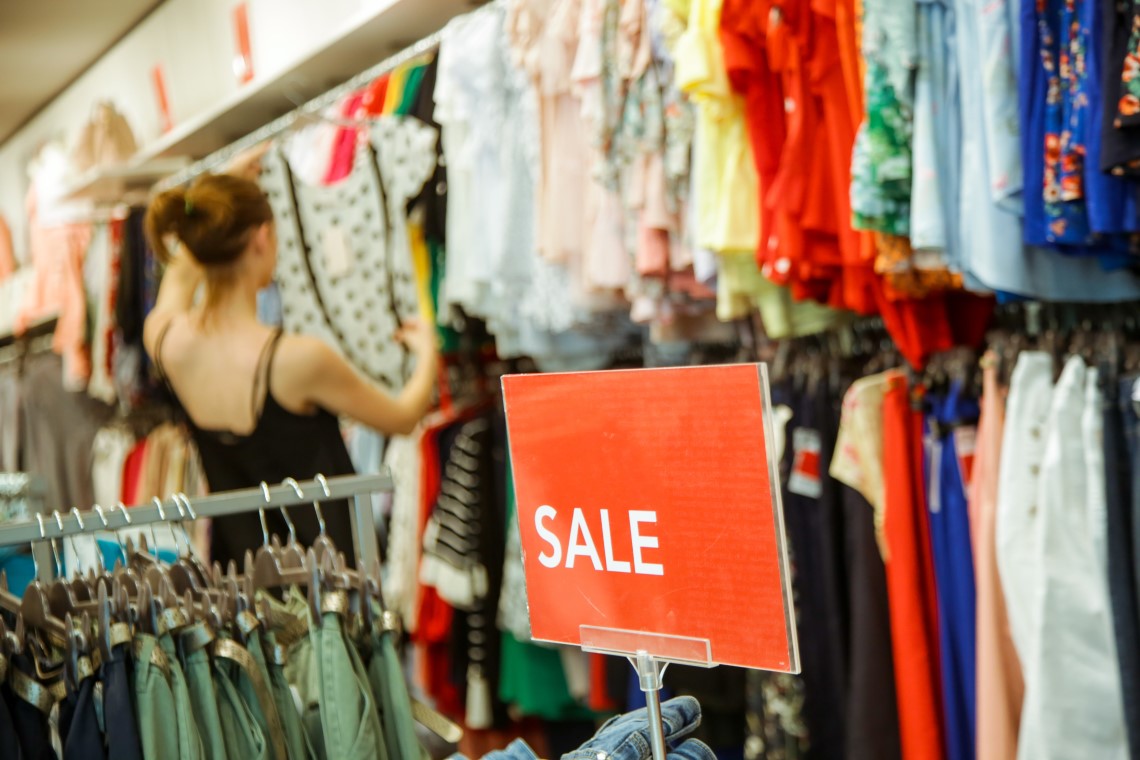Has the pandemic made us more ethical consumers?
We’ve heard it all before, but the coronavirus has changed the way we live in terms of how we think, how we live and what we buy. When it all began in March 2020, for much of the UK, the whole world paused. Many people were furloughed, people turned to baking and a daily walk as the new norm. With all the uncertainty, it may seem like sustainability took a back seat, but research reveals the opposite.
A 2020 report by Accenture revealed that “consumers themselves have dramatically evolved, and the change is lasting”. It found that 35% of consumers focus on necessities like fresh food and cleaning products while purchases of luxury goods like home decor and fashion decreased. Additionally, 60% of people reported making environmentally friendly, sustainable, or ethical purchases since the beginning of the pandemic.
Furthermore, in April 2020 Google revealed that the search ‘how to live a sustainable lifestyle’ had increased by more than 4,550% and a study by the Capgemini Research Institute found that 65% of consumers will be more mindful of their sustainability habits going into the ‘new normal’.
Reducing food waste and improving consumption
The same study found that consumers were becoming more mindful of what they bought in an effort to limit food waste and shop more cost-efficiently. Because of safety concerns, food consumption in particular has considerably changed with online food shopping sales soaring.
An American study found that online food shopping reduced impulse buys. Limited time in store means people are faced with less temptations and tend to stick to a shopping list online for convenience which saves money. Additionally, The Guardian found that people were ignoring best-before dates to minimise waste.
Hubbub also found that 90% of consumers said their shopping and cooking habits had changed and 57% admit they value food more with 43% enjoying it more. Pre-coronavirus, many of us worked through mealtimes and rarely had time to cook from scratch. Therefore, in terms of our wellbeing, food consumption has improved as people are starting to enjoy the social and relaxing benefits of cooking.

Supporting local businesses
Support for local businesses also rose. Consumers believed that local sourced food was safer and helped to minimise their carbon footprint, according to the Capgemini Research Institute. Plus, consumers wanted to support their local community and come together in a time of need.
Additionally, food waste has decreased. 51% of people are planning meals more carefully and using their leftovers more efficiently. For more information about how coronavirus has impacted our food waste, read our fourth article in our series about how working from home has impacted our sustainability.
Spending more time in nature
Due to restrictions, spending time in nature became a solitude. A National Trust survey found that a third of UK adults have become more interested in nature and two thirds wanted to make it a habit because it improved their mood. Perhaps this new respect for nature is behind the recent change in attitude to live an eco-friendly life.
Further positive shifts include cooking from scratch, spending quality time with family and socialising virtually. Rather than focusing on purchasing goods, consumers have been expressing gratitude for what they already have, like their health and family.
Although our consumer habits are improving, most of our daily routine is happening online at the moment so it’s not surprising that our energy bills are going up.

Breaking up with fast fashion
Fashion is one of the biggest industries with the lowest sustainability factor. It produces 20% of global wastewater and 10% of global carbon emissions. However, throw it away culture is out and outfit repeating is in! With social occasions at an all-time low, loungewear and pyjamas have taken centre stage. Demand for fashion has slowed and with physical shops closed, consumers are less tempted by window shopping. This period of time has actually allowed for reflection and spending more time at home has forced many of us to de-clutter and question “do I really need another pair of jeans?”.
Vogue highlighted the crazy and frankly, unnecessary statistics of the fashion industry: “the fashion industry produces 100 billion garments, and we buy roughly 80 billion. The remaining 20 billion are burned, shredded, or buried”. Although thrift shopping was beginning to take off, the pandemic put a stop to in-person second-hand shopping. That’s where technology wins again with the likes of Depop and eBay, making it easy to thrift from our home.
Not only do consumers simply not need any new clothes, but they’re also beginning to consciously acknowledge that being kind to the planet is more important. According to Helen Dickinson, chief executive of the British Retail Consortium, “COVID-19 has led to 2020 being the worst year on record for retail sales growth”. The Standard further revealed that total retail sales fell 0.3% in 2020 compared to 2019. Of course, the closure of physical shops has impacted the statistics as 80% of transactions in the fashion industry happen in store, but consumer attitude has a prevalent role to play.
The pandemic also highlighted the unethical working conditions of many mainstream brands. The ethical awakening led many consumers to boycott their previously favourite brands. For example, billions of orders from Bangladeshi supplies were cancelled and 72.4% of suppliers said they were “unable to provide their workers with some income when furloughed, and 80.4% said they were unable to provide severance pay when order cancelations resulted in worker dismissals” according to Elle. Consumers were outraged and the reality of their wardrobe struck. Therefore, consumer attitude has changed from one of retail therapy to the preference of essential items to both survive, and improve wellbeing in this crazy time we find ourselves in.

Are these changes the new norm?
Although consumers have become more ethical during lockdown, whether these changes become the new norm is yet to be revealed. But Karine Trinquetel from Kantar’s sustainable transformation unit believes they will. She told the BBC, “people’s views on sustainability have become reinforced, even accelerated. We are at a tipping point. All around the world, people are expressing an appetite for change.”
For further advice on how to live more sustainably, explore our Learn&Save platform. To start your sustainability adventures and to save money, check out our Home Club.